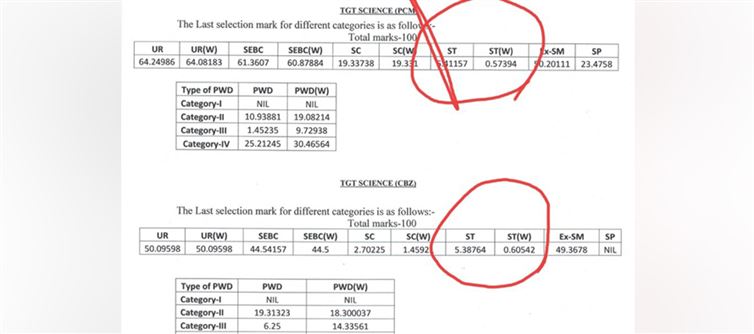
The stark contrast between china and india in the field of science and technology often leads to uncomfortable comparisons, especially when it comes to innovation, research output, and industrial progress. china has positioned itself as a global leader in critical areas such as artificial intelligence, semiconductors, green energy, and high-speed rail, while india continues to lag behind despite having comparable talent.
A major reason cited by critics is the politicization of merit and the systemic reliance on vote-bank politics, often at the cost of academic and scientific excellence. In china, the government invests heavily in R&D, talent retention, and global collaborations, while india often struggles with brain drain, underfunded institutions, and bureaucratic red tape.
The deep-rooted issue of caste-based reservations in education and government jobs remains one of the most contentious debates in India’s developmental journey. When meritorious students scoring high marks are denied opportunities while others with negligible scores are selected based on caste quotas, it not only demoralizes talent but also weakens the foundation of national competence. The example of a candidate scoring zero being selected for a teaching post, while someone with a strong academic record is rejected, exemplifies a system where social justice, though important, begins to conflict with the need for merit-driven development. Such instances, when repeated across generations, hollow out institutions that are supposed to produce innovators, scientists, and educators.
While the call for 100% reservation might sound sarcastic or extreme, it reflects the growing frustration among youth who feel disenfranchised by a system that rewards identity over ability. Many talented indian students grow up with the painful awareness that their future may not be decided solely by their hard work, but by the circumstances of their birth. This leads to a mass exodus of talent—students and professionals choosing to settle abroad where meritocracy is more valued. Unless india reforms its education and recruitment policies to balance social equity with merit, and invests seriously in innovation and research, it risks falling further behind. china may be ahead by a hundred years today, not just because of its discipline and investment, but because it’s chosen competence over compromise.
A major reason cited by critics is the politicization of merit and the systemic reliance on vote-bank politics, often at the cost of academic and scientific excellence. In china, the government invests heavily in R&D, talent retention, and global collaborations, while india often struggles with brain drain, underfunded institutions, and bureaucratic red tape.
The deep-rooted issue of caste-based reservations in education and government jobs remains one of the most contentious debates in India’s developmental journey. When meritorious students scoring high marks are denied opportunities while others with negligible scores are selected based on caste quotas, it not only demoralizes talent but also weakens the foundation of national competence. The example of a candidate scoring zero being selected for a teaching post, while someone with a strong academic record is rejected, exemplifies a system where social justice, though important, begins to conflict with the need for merit-driven development. Such instances, when repeated across generations, hollow out institutions that are supposed to produce innovators, scientists, and educators.
While the call for 100% reservation might sound sarcastic or extreme, it reflects the growing frustration among youth who feel disenfranchised by a system that rewards identity over ability. Many talented indian students grow up with the painful awareness that their future may not be decided solely by their hard work, but by the circumstances of their birth. This leads to a mass exodus of talent—students and professionals choosing to settle abroad where meritocracy is more valued. Unless india reforms its education and recruitment policies to balance social equity with merit, and invests seriously in innovation and research, it risks falling further behind. china may be ahead by a hundred years today, not just because of its discipline and investment, but because it’s chosen competence over compromise.




 click and follow Indiaherald WhatsApp channel
click and follow Indiaherald WhatsApp channel